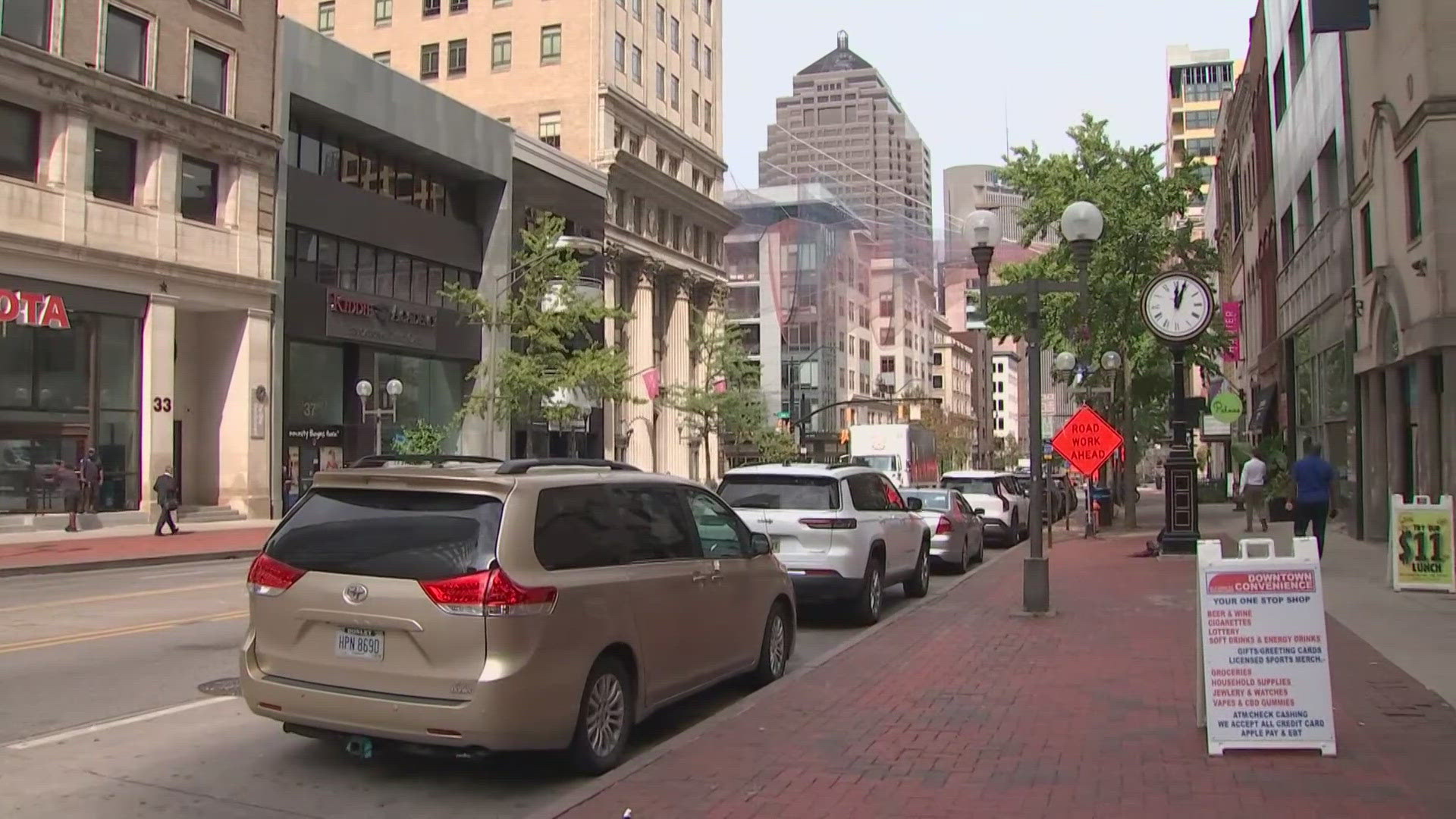COLUMBUS, Ohio — Focusing on the “business” of downtown is where Columbus leaders are placing their efforts as central Ohio prepares to welcome more than a million new residents in the years to come.
“The community told us that they wanted downtown to be much more representative with more small, women-owned and minority-owned businesses,” said Amy Taylor, president of Downtown Columbus, Inc.
DCI is a private nonprofit organization created in 2002 to help lead Columbus through collaborations that improve connectivity, livability and inclusivity.
“People who live downtown want to walk to their experiences and that means they want to walk to the places where they buy things,” Taylor said.
The City of Columbus is now accepting applications for phase two of the Ground Floor Growth Initiative, which removes barriers for people who want to start their own businesses in the capital city. It’s a partnership with DCI and the Columbus Empowerment Corporation.
There are three key components to the program:
- Graduated Rent Support and Risk Mitigation Fund: Participating businesses will receive rent support for the first three years of their lease. That support will gradually wind down until the business is independent after three years. Because small, local businesses generally do not have as much available cash as larger, national businesses that are often renting these types of spaces, the City will maintain a risk mitigation fund to alleviate any concerns of participating property owners.
- Tenant Improvement Support: The City of Columbus committed ongoing funds to contribute to the renovation of retail spaces participating in the program. Property owners and small business owners will also contribute to renovations, ensuring that all parties are investing in improvements and that renovation costs are not an insurmountable barrier to entry for small businesses.
- Wraparound Technical Assistance: The city established a $150,000 contract with the Columbus Empowerment Corporation to provide advising services to support businesses navigating challenges as they enter into new brick-and-mortar locations. CEC will also be available to businesses neighboring program locations in the corridor, ensuring that businesses thrive collectively.
“We aren’t throwing people out on their own, we’re really part of this,” Taylor said. “We want you to come and take that risk, but we’re not asking you to do it alone.”
The city says the Gay Street District is really the pulse of downtown Columbus. They’d like to see phase two businesses focus more on the quality of life for the 2,000 people who call that district home. Another 500 more are expected to move in by the end of next year.
“The kind of retailers where you go and maybe get a scarf, or get a belt or nails done and hair done,” Taylor said.
She credits the success of the program to Columbus City Council Member Nick Bankston who helped create this program last fall. In a statement, Bankston says removing barriers to success for minority and women-owned businesses will continue to be a priority for him.
“We are now one step closer to a downtown that is reflective of the beautiful diversity that exists in our city,” said Bankston, chair of the Economic Development & Small and Minority Business Committee.

